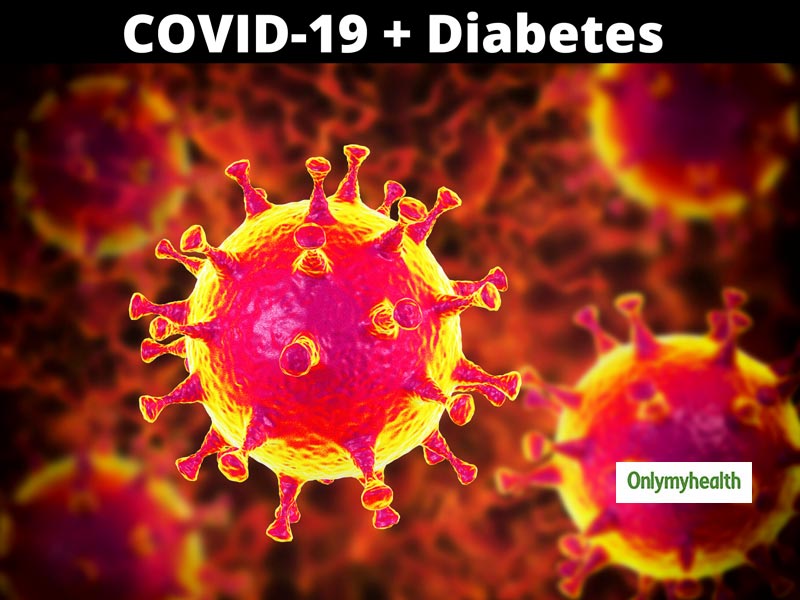
WHAT EXACTLY IS A LOCKDOWN? Lockdown means staying indoors which also means less activity, less mobility, less exercise and more problems arising because of lack of movement. Since many diabetics are used to daily physical activity to maintain their blood sugar levels, this period can create worry, tension and depression. Here are few Do's for Lockdown Diabetics:
Table of Content:-

- Follow your so far learned diet wisely and maintain a balanced diet plan.
- Eat a calculated amount of calories to maintain the requirement of the body. This will help to lose or gain weight as per the requirement and to maintain body weight close to the ideal/ desirable body weight.
- As far as possible try to eat high fibre foods (whole grains, pulses, and all green vegetables) as well as greens and vegetables. Eat fruits.
- Eat a diet low in glycemic index which helps keep the blood sugars in the normal range.
- Mustard oil, corn oil, sunflower oil, groundnut oil, rice bran oil and gingelly oil can be preferred. Olive oil is best used for salads.
- Keep track of all the food you eat in a day.
- Ensure eating food at the appropriate time, inappropriate amounts and in proper frequency.
- Drink sufficient amounts of water.
- Sleep on time, maintain a proper sleeping time and period.
Also Read: Diabetes 1.5: Understanding The Latent Autoimmune Diabetes By Dr Krishnamurthy

Here are few Don'ts for Lockdown Diabetics:
- Patients who are on insulin or oral hypoglycemic agents should not fast, because it may result in hypoglycemia (low blood sugar levels).
- They should not skip a meal assuming that it can be made up by consuming extra food at the next meal. This may result in low blood sugar and also blood glucose fluctuations which leads to microvascular complications.
- Do not eat white bread, chips, and pastries, which quickly increase blood sugar.
- Avoid processed foods as they will be rich in salt and oil.
- Restrict fried and fatty foods.
- Restrict refined and starchy food items such as maida, rava, white bread, potatoes, other tubers, processed foods and meats.

- In shortage of stevia, do not use artificial sweeteners beyond the recommended quantity. If possible drink tea/coffee without sugar gradually.
- In shortage of fruits, do not consume sweet-tasting fruits like Sitaphal (custard apple), chickoo, sweet bananas, grapes, mangoes etc…
- Do not exercise on an empty or full stomach.
- Do not watch too much TV especially while eating food.
- Avoid Table salt.
- Do not miss your medication. Consult your family doctor on call if needed.
Don't neglect the mind...
- The toughest and most important thing in such a situation is to keep your mind stable and sorted. For that meditation can play a very important role.
- To release the stored stress and continual stress on a day-to-basis, we suggest whole brain posture meditation. In this, one is made to sit in a particular way, concentrate on bad memories, feel them in the body, and make strong intentions to get relief from them. This way they start getting released.

- Besides whole brain posture meditation, there is breathwork meditation and soul-mind-body healing which are also very useful tools for dealing with stress and negativity.
- All the above will help you in releasing the negativity and building positivity which is utmost important at this stage.
- One must understand that the situation is tough and inevitable. So facing it tactfully and courageously is the only way.
Also Read: Diabetics Don't Develop Diabetic Retinopathy Within 10 Years Of The Disease: Dr Rajesh
So.. stay healthy, stay active, THINK POSITIVE and STAY SAFE!
(Medically Reviewed: Dr Pramod Tripathi, nutritionist and Founder of Freedom From Diabetes)
Read more articles on Diabetes
How we keep this article up to date:
We work with experts and keep a close eye on the latest in health and wellness. Whenever there is a new research or helpful information, we update our articles with accurate and useful advice.
Current Version